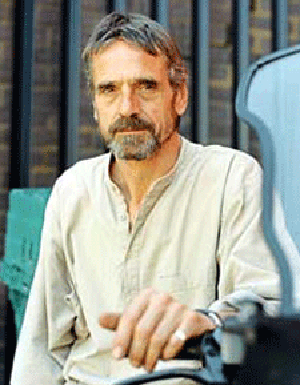WEST Cork resident, actor Jeremy Irons has narrated a new film which documents the impact of mathematician George Boole on modern computing.
By Connor Lynch
WEST Cork resident, actor Jeremy Irons has narrated a new film which documents the impact of mathematician George Boole on modern computing.
The Genius of George Boole was commissioned by University College Cork and will be aired on RTÉ One on Tuesday, September 1st at 10:35pm.
The documentary assembles academics and industry leaders from Ireland and the rest of the world to look back on the life of George Boole, whose contribution to the information age has gone largely unrecognised, until now.
George Boole was UCC’s (then Queen’s College) first professor of Mathematics and is credited with designing the silicon chip that is used in modern computers.
Vice-president of Intel, Rory McInerney, explains: ‘At the core of the computer chip is essentially a switch, an on/off switch; in today’s chip this is on a silicon chip so you have a transistor.’ This allows microchips to control the electronic signals that power electronic devices.
Another West Cork resident, Lord David Puttnam, who is one of the heavyweights backing the recently announced digital hub for Skibbereen, Ludgate, acknowledges the importance of Boole’s achievements in the film.
‘Is George Boole important? No George Boole, no Google, no Amazon, no Intel … that makes him pretty important,’ he says.
George Boole was a cobbler’s son born in Lincoln, England in 1815. Despite his genius being apparent from a young age, he had no university education and found life in British society difficult.
The documentary, which is just shy of an hour long, looks back on his humble beginnings, through to his life in Cork.
His time in Cork is put into the context of the poor economic and social conditions in the county following the famine, and the film explores how much these factors influenced his research.
Intel’s McInerney says that Boole was ‘looking at human problems, trying to understand the way people think, what makes them human.’










